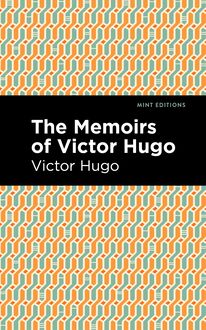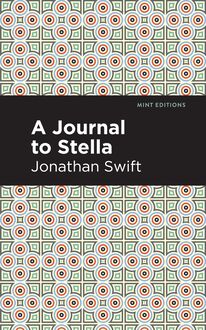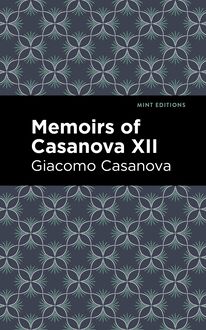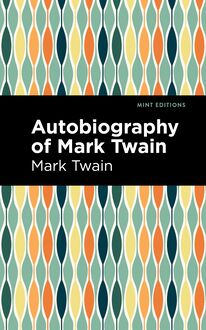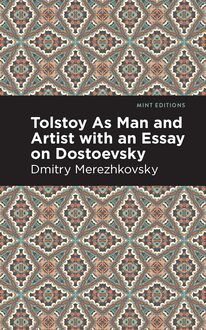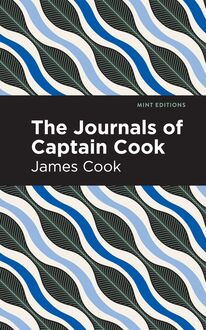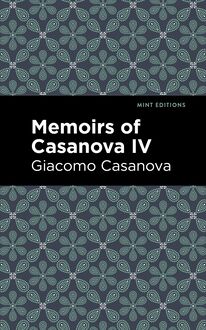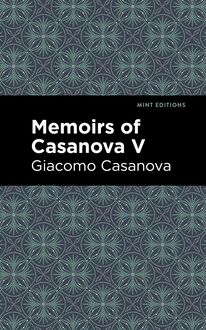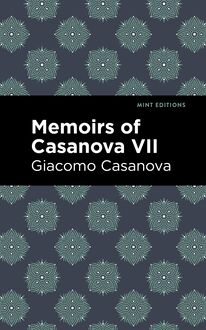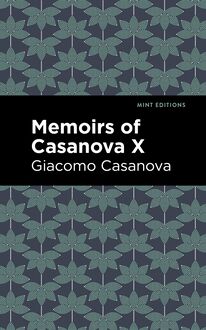-
 Univers
Univers
-
 Ebooks
Ebooks
-
 Livres audio
Livres audio
-
 Presse
Presse
-
 Podcasts
Podcasts
-
 BD
BD
-
 Documents
Documents
-
- Cours
- Révisions
- Ressources pédagogiques
- Sciences de l’éducation
- Manuels scolaires
- Langues
- Travaux de classe
- Annales de BEP
- Etudes supérieures
- Maternelle et primaire
- Fiches de lecture
- Orientation scolaire
- Méthodologie
- Corrigés de devoir
- Annales d’examens et concours
- Annales du bac
- Annales du brevet
- Rapports de stage
La lecture à portée de main
Vous pourrez modifier la taille du texte de cet ouvrage
Découvre YouScribe en t'inscrivant gratuitement
Je m'inscrisDécouvre YouScribe en t'inscrivant gratuitement
Je m'inscrisEn savoir plus
Vous pourrez modifier la taille du texte de cet ouvrage
En savoir plus

Description
My Own Story (1914) is a memoir by English political activist and suffragette Emmeline Pankhurst. Written at the onset of the First World War,
My Own Story brings attention to Pankhurst’s cause while defending her decision to cease activism until the end of the war. Notable for its descriptions of the British prison system, My Own Story is an invaluable document of a life dedicated to others, of a historical moment in which an oppressed group rose up to advocate for the simplest of demands: equality.
Born in a politically active household, Emmeline Pankhurst was introduced to the women’s suffrage movement at a young age. In 1903, she founded the Women’s Social and Political Union (WSPU), an organization dedicated to the suffragette movement. As their speeches, rallies, and petitions failed to make headway, they turned to militant protest, and in 1908 Emmeline was arrested for attempting to enter Parliament to deliver a document to Prime Minister H.H. Asquith. Imprisoned for six weeks, she observed the horrifying conditions of prison life, including solitary confinement. This experience changed her outlook on the struggle for women’s suffrage, and she increasingly saw imprisonment as a means of radical publicity. Over the next several years, she would be arrested seven times for rioting, destroying property, and assaulting police officers, and while in prison staged hunger strikes in order to gain the attention of the press and political establishment. My Own Story is a record of one woman’s tireless advocacy for the sake of countless others.
With a beautifully designed cover and professionally typeset manuscript, this edition of Emmeline Pankhurst’s My Own Story is a classic of English literature reimagined for modern readers.
Sujets
Informations
| Publié par | Mint Editions |
| Date de parution | 01 février 2021 |
| Nombre de lectures | 0 |
| EAN13 | 9781513275949 |
| Langue | English |
| Poids de l'ouvrage | 2 Mo |
Informations légales : prix de location à la page 0,0500€. Cette information est donnée uniquement à titre indicatif conformément à la législation en vigueur.
Extrait
My Own Story
Emmeline Pankhurst
My Own Story was first published in 1914.
This edition published by Mint Editions 2020.
ISBN 9781513270944 | E-ISBN 9781513275949
Published by Mint Editions®
minteditionbooks.com
Publishing Director: Jennifer Newens
Design & Production: Rachel Lopez Metzger
Project Manager: Micaela Clark
Typesetting: Westchester Publishing Services
C ONTENTS B OOK I. T HE M AKING OF A M ILITANT B OOK II. F OUR Y EARS OF P EACEFUL M ILITANCY B OOK III. T HE W OMEN’S R EVOLUTION
BOOK I
THE MAKING OF A MILITANT
Mrs. Pankhurst’s Own Story
I
Those men and women are fortunate who are born at a time when a great struggle for human freedom is in progress. It is an added good fortune to have parents who take a personal part in the great movements of their time. I am glad and thankful that this was my case.
One of my earliest recollections is of a great bazaar which was held in my native city of Manchester, the object of the bazaar being to raise money to relieve the poverty of the newly emancipated negro slaves in the United States. My mother took an active part in this effort, and I, as a small child, was entrusted with a lucky bag by means of which I helped to collect money.
Young as I was—I could not have been older than five years—I knew perfectly well the meaning of the words slavery and emancipation. From infancy I had been accustomed to hear pro and con discussions of slavery and the American Civil War. Although the British government finally decided not to recognise the Confederacy, public opinion in England was sharply divided on the questions both of slavery and of secession. Broadly speaking, the propertied classes were pro-slavery, but there were many exceptions to the rule. Most of those who formed the circle of our family friends were opposed to slavery, and my father, Robert Goulden, was always a most ardent abolitionist. He was prominent enough in the movement to be appointed on a committee to meet and welcome Henry Ward Beecher when he arrived in England for a lecture tour. Mrs. Harriet Beecher Stowe’s novel, “Uncle Tom’s Cabin,” was so great a favourite with my mother that she used it continually as a source of bedtime stories for our fascinated ears. Those stories, told almost fifty years ago, are as fresh in my mind to-day as events detailed in the morning’s papers. Indeed they are more vivid, because they made a much deeper impression on my consciousness. I can still definitely recall the thrill I experienced every time my mother related the tale of Eliza’s race for freedom over the broken ice of the Ohio River, the agonizing pursuit, and the final rescue at the hands of the determined old Quaker. Another thrilling tale was the story of a negro boy’s flight from the plantation of his cruel master. The boy had never seen a railroad train, and when, staggering along the unfamiliar railroad track, he heard the roar of an approaching train, the clattering car-wheels seemed to his strained imagination to be repeating over and over again the awful words, “Catch a nigger—catch a nigger—catch a nigger—” This was a terrible story, and throughout my childhood, whenever I rode in a train, I thought of that poor runaway slave escaping from the pursuing monster.
These stories, with the bazaars and the relief funds and subscriptions of which I heard so much talk, I am sure made a permanent impression on my brain and my character. They awakened in me the two sets of sensations to which all my life I have most readily responded: first, admiration for that spirit of fighting and heroic sacrifice by which alone the soul of civilisation is saved; and next after that, appreciation of the gentler spirit which is moved to mend and repair the ravages of war.
I do not remember a time when I could not read, nor any time when reading was not a joy and a solace. As far back as my memory runs I loved tales, especially those of a romantic and idealistic character. “Pilgrim’s Progress” was an early favourite, as well as another of Bunyan’s visionary romances, which does not seem to be as well known, his “Holy War.” At nine I discovered the Odyssey and very soon after that another classic which has remained all my life a source of inspiration. This was Carlyle’s “French Revolution,” and I received it with much the same emotion that Keats experienced when he read Chapman’s translation of Homer—“… like some watcher of the skies, When a new planet swims into his ken.”
I never lost that first impression, and it strongly affected my attitude toward events which were occurring around my childhood. Manchester is a city which has witnessed a great many stirring episodes, especially of a political character. Generally speaking, its citizens have been liberal in their sentiments, defenders of free speech and liberty of opinion. In the late sixties there occurred in Manchester one of those dreadful events that prove an exception to the rule. This was in connection with the Fenian Revolt in Ireland. There was a Fenian riot, and the police arrested the leaders. These men were being taken to the jail in a prison van. On the way the van was stopped and an attempt was made to rescue the prisoners. A man fired a pistol, endeavouring to break the lock of the van door. A policeman fell, mortally wounded, and several men were arrested and were charged with murder. I distinctly remember the riot, which I did not witness, but which I heard vividly described by my older brother. I had been spending the afternoon with a young playmate, and my brother had come after tea to escort me home. As we walked through the deepening November twilight he talked excitedly of the riot, the fatal pistol shot, and the slain policeman. I could almost see the man bleeding on the ground, while the crowd swayed and groaned around him.
The rest of the story reveals one of those ghastly blunders which justice not infrequently makes. Although the shooting was done without any intent to kill, the men were tried for murder and three of them were found guilty and hanged. Their execution, which greatly excited the citizens of Manchester, was almost the last, if not the last, public execution permitted to take place in the city. At the time I was a boarding-pupil in a school near Manchester, and I spent my week-ends at home. A certain Saturday afternoon stands out in my memory, as on my way home from school I passed the prison where I knew the men had been confined. I saw that a part of the prison wall had been torn away, and in the great gap that remained were evidences of a gallows recently removed. I was transfixed with horror, and over me there swept the sudden conviction that that hanging was a mistake—worse, a crime. It was my awakening to one of the most terrible facts of life—that justice and judgment lie often a world apart.
I relate this incident of my formative years to illustrate the fact that the impressions of childhood often have more to do with character and future conduct than heredity or education. I tell it also to show that my development into an advocate of militancy was largely a sympathetic process. I have not personally suffered from the deprivations, the bitterness and sorrow which bring so many men and women to a realisation of social injustice. My childhood was protected by love and a comfortable home. Yet, while still a very young child, I began instinctively to feel that there was something lacking, even in my own home, some false conception of family relations, some incomplete ideal.
This vague feeling of mine began to shape itself into conviction about the time my brothers and I were sent to school. The education of the English boy, then as now, was considered a much more serious matter than the education of the English boy’s sister. My parents, especially my father, discussed the question of my brothers’ education as a matter of real importance. My education and that of my sister were scarcely discussed at all. Of course we went to a carefully selected girls’ school, but beyond the facts that the head mistress was a gentlewoman and that all the pupils were girls of my own class, nobody seemed concerned. A girl’s education at that time seemed to have for its prime object the art of “making home attractive”—presumably to migratory male relatives. It used to puzzle me to understand why I was under such a particular obligation to make home attractive to my brothers. We were on excellent terms of friendship, but it was never suggested to them as a duty that they make home attractive to me. Why not? Nobody seemed to know.
The answer to these puzzling questions came to me unexpectedly one night when I lay in my little bed waiting for sleep to overtake me. It was a custom of my father and mother to make the round of our bedrooms every night before going themselves to bed. When they entered my room that night I was still awake, but for some reason I chose to feign slumber. My father bent over me, shielding the candle flame with his big hand. I cannot know exactly what thought was in his mind as he gazed down at me, but I heard him say, somewhat sadly, “What a pity she wasn’t born a lad.”
My first hot impulse was to sit up in bed and protest that I didn’t want to be a boy, but I lay still and heard my parents’ footsteps pass on toward the next child’s bed. I thought about my father’s remark for many days afterward, but I think I never decided that I regretted my sex. However, it was made quite clear that men considered themselves superior to women, and that women apparently acquiesced in that belief.
I found this view of things difficult to reconcile with the fact that both my father and my mother were advocates of equal suffrage. I was very young when the Reform Act of 1866 was passed, but I very well remember the agitation caused by certain circumstances attending it. This Reform Act, known as the Household Franchise Bill, marked the first popular extension of the ballot in England si
-
 Univers
Univers
-
 Ebooks
Ebooks
-
 Livres audio
Livres audio
-
 Presse
Presse
-
 Podcasts
Podcasts
-
 BD
BD
-
 Documents
Documents
-
Jeunesse
-
Littérature
-
Ressources professionnelles
-
Santé et bien-être
-
Savoirs
-
Education
-
Loisirs et hobbies
-
Art, musique et cinéma
-
Actualité et débat de société
-
Jeunesse
-
Littérature
-
Ressources professionnelles
-
Santé et bien-être
-
Savoirs
-
Education
-
Loisirs et hobbies
-
Art, musique et cinéma
-
Actualité et débat de société
-
Actualités
-
Lifestyle
-
Presse jeunesse
-
Presse professionnelle
-
Pratique
-
Presse sportive
-
Presse internationale
-
Culture & Médias
-
Action et Aventures
-
Science-fiction et Fantasy
-
Société
-
Jeunesse
-
Littérature
-
Ressources professionnelles
-
Santé et bien-être
-
Savoirs
-
Education
-
Loisirs et hobbies
-
Art, musique et cinéma
-
Actualité et débat de société
- Cours
- Révisions
- Ressources pédagogiques
- Sciences de l’éducation
- Manuels scolaires
- Langues
- Travaux de classe
- Annales de BEP
- Etudes supérieures
- Maternelle et primaire
- Fiches de lecture
- Orientation scolaire
- Méthodologie
- Corrigés de devoir
- Annales d’examens et concours
- Annales du bac
- Annales du brevet
- Rapports de stage
